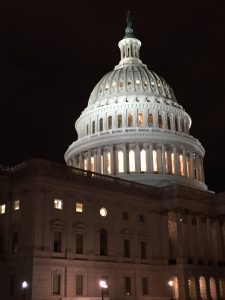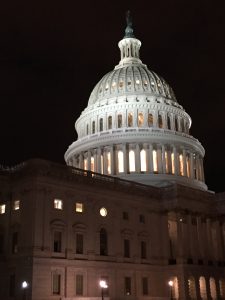Last night the House passed the Fiscal Responsibility Act. And now it heads to the Senate. Where it can expect some trouble from two of the most fiscally conservative Senators.

Senator Mike Lee (R-Utah) has introduced an amendment to the “Fiscal Responsibility Act of 2023” in a move to promote fiscal accountability and regulatory reform. The amendment seeks to strike Section 265 from the Act, a provision that undermines fiscal restraint in proposed regulatory rule-making.
He says, Section 265 currently empowers the Biden Administration’s Director of the Office of Management and Budget (OMB), Shalanda Young, to unilaterally waive a provision referred to as “administrative PAYGO”. This provision requires administrative agencies to offset the expense of any regulatory discretionary administrative action. Removing ths check undermines the Fiscal Responsibility Act’s claim to regulatory reforms.
In a recent White House briefing, Director Young stated: “… if that waiver is deemed necessary to make sure President Biden’s agenda is carried forward, we’re going to use that authority.” This declaration underscores the need for Lee’s proposed amendment to maintain control over government spending.
The Biden-McCarthy debt limit deal doesn’t go far enough. It doesn’t do the basic things it purports to do. pic.twitter.com/txqIRaP5KQ
— Mike Lee (@SenMikeLee) June 1, 2023
Sen. @BasedMikeLee slams proposed budget deal:
— Benny Johnson (@bennyjohnson) May 30, 2023
“If you’re a Republican member of the House or the Senate and you’re thinking about voting for this, come talk to me… Read through it. You’ll see this bill does not do what it claims it does. This juice is not worth the squeeze… pic.twitter.com/H3Tffpo7rg
Rand Paul has plans for if and when the FRA reaches the Senate with his conservative alternative to the Biden-McCarthy debt deal. This alternative will be offered as an amendment to the so-called “Fiscal Responsibility Act” deal and would replace existing language with responsible reforms and necessary cuts.
“Sixty percent of Americans say Congress should only raise the nation’s debt ceiling if it cuts spending at the same time. I would guess the Americans answering that poll meant real cuts in spending, not an annual increase of one percent above already bloated levels of COVID-19 spending,” said Dr. Paul. “Bold actions must be taken to defeat our mounting national debt, and my conservative alternative to the Biden-McCarthy deal gives us a real opportunity to get our fiscal house in order.”
Dr. Paul’s amendment would replace the existing language of the Biden-McCarthy “Fiscal Responsibility Act” (FRA) with the following measures:
- Replaces the blanket 2-year suspension on the debt ceiling with a $500 billion hike forcing Congress to come back to the table to do their job and figure out solutions to the cascading debt issue highlighted by the debt ceiling.
- Replaces the caps on discretionary spending with caps on total spending (the sum of discretionary and mandatory spending) that cuts five percent spent each year.
- If the government continues to spend at current rates, this plan would trigger an automatic $302 billion cut in FY24 and another $241 billion cut in FY25 for a total of $545 billion in the two-year period.
- If the government adhered to these caps for five years, by FY28 the federal government would have the first balanced budget since 2001.
- Creates a mandate that growth in federal outlays may at no point exceed the growth in revenue from the previous fiscal year.
The table below outlines the caps Dr. Paul’s amendment would set and the total cuts by year from FY23 enacted levels.
| Total Spending Caps (in billions) | ||
| Fiscal Year | Paul Amendment Caps | Cumulative Cuts (from FY23) |
| FY24 | $4,839 | -$303 |
| FY25 | $4,597 | -$545 |
| FY26 | $4,367 | -$775 |
| FY27 | $4,149 | -$993 |
| FY28 | $3,942 | -$1,201 |
This morning I joined @MorningsMaria to discuss the upcoming debt deal battle in the Senate and my conservative alternative. I will insist on an amendment vote to enact REAL spending caps that lead to a balanced budget in 5 years! pic.twitter.com/T1u1IWkeZK
— Senator Rand Paul (@SenRandPaul) June 1, 2023
Sen. Rand Paul surgically dismantles bloated budget deal: “IT’S CRAZY!”
— Benny Johnson (@bennyjohnson) May 31, 2023
pic.twitter.com/haNgzKxejO
